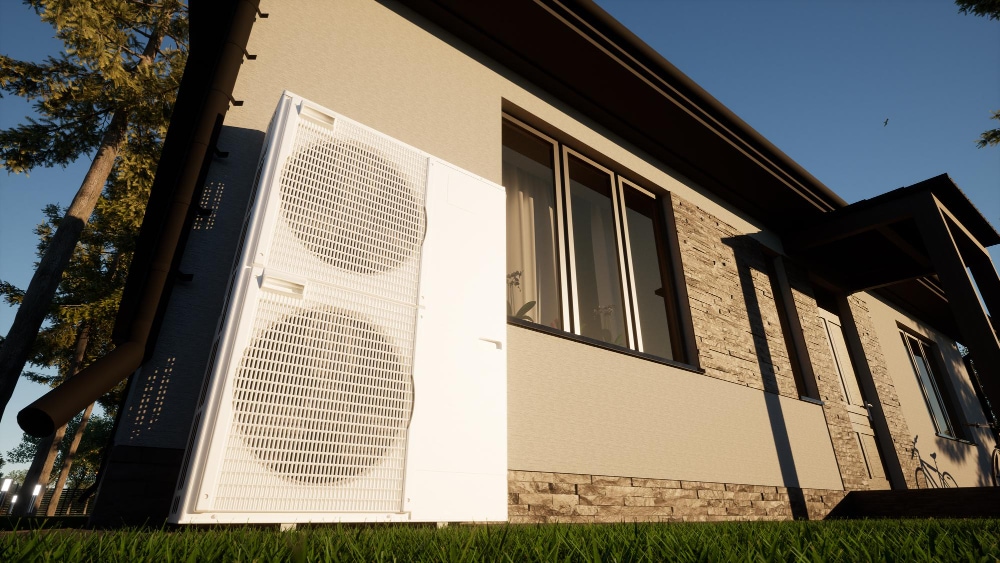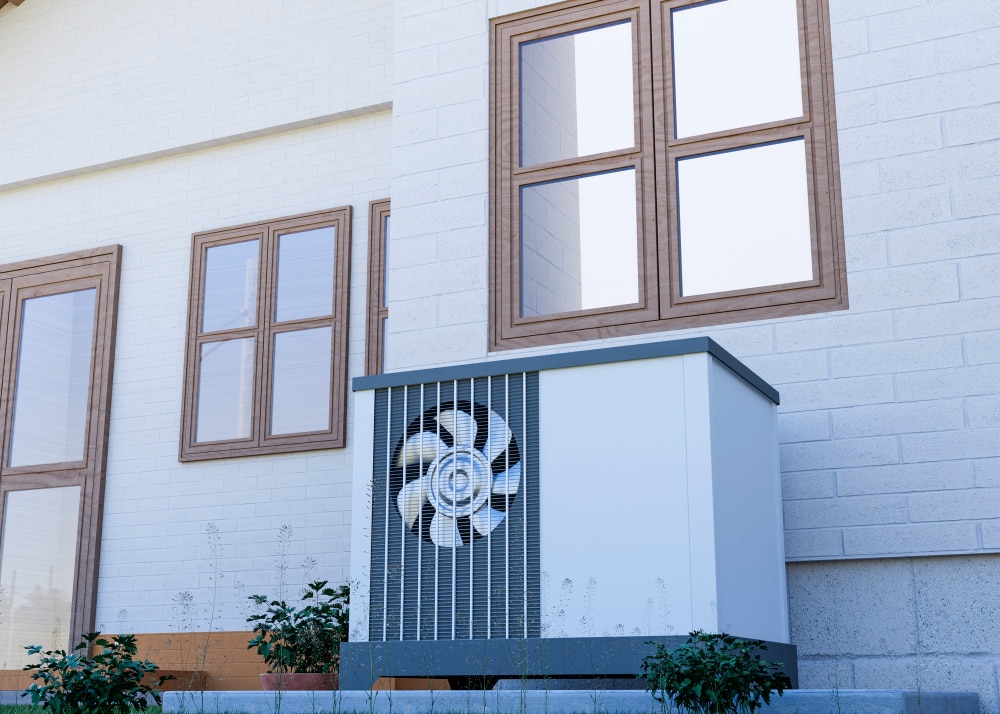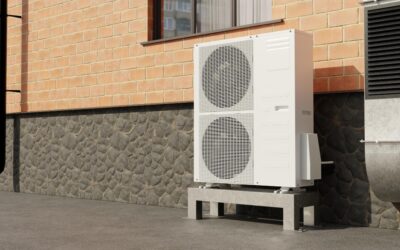Updated 25 Jun 2024
Did you know that heat pumps can save you up to 50% on your energy bills? With energy costs going up, it’s important to look into more cost-effective options. Heat pumps work by moving heat rather than generating it, making them much more efficient. They can heat your home in the winter and cool it in the summer, all while using less energy.
In this article, we’ll break down how heat pumps can save you money over time. We’ll look at how much they cost to install, how energy efficient they are, and the long-term benefits. You’ll see how the initial investment can pay off with lower energy bills. Plus, we’ll share tips on finding the right heat pump for your home and making sure it runs efficiently. By the end, you’ll know if a heat pump is a good financial choice for your home.

heat pump installed
The Initial Investment: Assessing the Cost of Heat Pump Installation
When considering heat pump installation, you’ll need to assess the initial investment and determine the cost. Conducting a cost benefit analysis and calculating the return on investment is crucial in making an informed decision.
The initial cost of installing a heat pump can change depending on things like the size of your home, the type of heat pump you pick, and any extra installation needs. But remember, even though the upfront cost might seem high, the long-term savings can be really big.
Heat pumps are highly energy-efficient, providing heating and cooling at a fraction of the cost compared to traditional HVAC systems. Studies have shown that homeowners can recoup the initial investment within a few years through reduced energy bills and increased home value.
Energy Efficiency: Calculating the Potential Savings of Heat Pumps
Calculating the potential savings of heat pumps is crucial for determining their energy efficiency. When considering the installation of a heat pump, it is important to understand the long-term benefits it can provide. By accurately calculating energy consumption, you can estimate the potential savings that heat pumps can offer.
Energy consumption can be calculated by analysing the amount of energy used by traditional heating systems compared to heat pumps. This data-driven approach allows you to make an informed decision about the potential cost savings that heat pumps can provide.
Additionally, conducting an environmental impact assessment will help you understand the overall benefits of heat pumps in terms of reducing greenhouse gas emissions and promoting sustainability.
By understanding the potential savings and environmental benefits of heat pumps, you can make a decision that aligns with your desire for freedom. Investing in an energy-efficient heating system not only saves you money in the long run but also contributes to a greener future.
Long-Term Benefits: Understanding the Financial Advantage of Heat Pump Systems
By grasping the financial advantage of heat pump systems, you can make an informed decision that aligns with your desire for long-term savings and a greener future.
When it comes to financial analysis, heat pumps have a strong case. These systems offer a remarkable return on investment (ROI) due to their energy efficiency and lower operating costs. According to research, heat pumps can reduce heating and cooling expenses by up to 50%, leading to significant savings over time.
Additionally, with advancements in technology and government incentives, the initial installation costs are decreasing, making heat pumps a more financially viable option.

heat pump home
Conclusion
In conclusion, the economics of heat pumps are undeniably advantageous. The initial investment may seem daunting, but the long-term savings potential is substantial. By calculating the potential savings through energy efficiency, you can witness the financial advantage of heat pump systems.
The alluring allure of these systems lies in their ability to provide sustainable solutions while reducing costs. So, don’t hesitate to explore the world of heat pumps and unlock a world of warmth, wealth, and wise decisions.
Frequently Asked Questions



